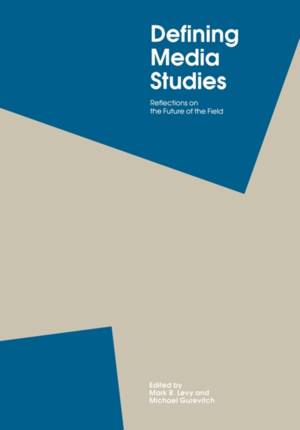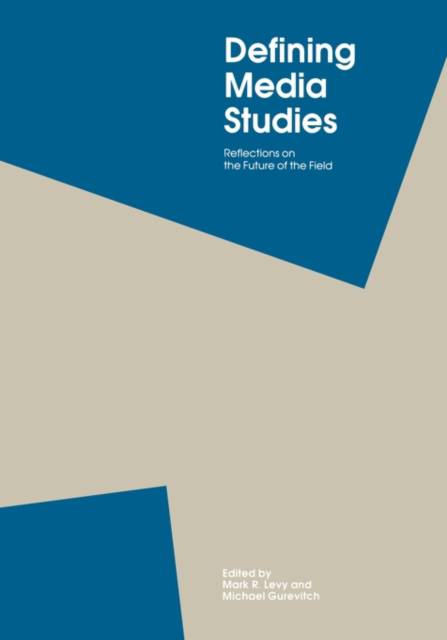
Je cadeautjes zeker op tijd in huis hebben voor de feestdagen? Kom langs in onze winkels en vind het perfecte geschenk!
- Afhalen na 1 uur in een winkel met voorraad
- Gratis thuislevering in België vanaf € 30
- Ruim aanbod met 7 miljoen producten
Je cadeautjes zeker op tijd in huis hebben voor de feestdagen? Kom langs in onze winkels en vind het perfecte geschenk!
- Afhalen na 1 uur in een winkel met voorraad
- Gratis thuislevering in België vanaf € 30
- Ruim aanbod met 7 miljoen producten
Zoeken
Defining Media Studies
Reflections on the Future of the Field
Mark R. Levy, Michael Gurevitch
Paperback | Engels
€ 59,45
+ 118 punten
Omschrijving
The last two issues of the 1993 Journal of Communication featured a discipline-wide self-analysis, collecting over fifty essays by giants in the field as well as many up-and-coming scholars. Now available in a single volume for courses in communications theory and practice, this collective reconnaissance of scholarship and research in the field makes a fundamental contribution to understanding the very essence of media studies. Representing a wide range of intellectual perspectives, Defining Media Studies incorporates the growing presence and significance of such technological media as the computer Net, virtual reality, and fiber optic telecommunication. Maintaining that such leaps in communication now help to define the parameters of media reality, the editors argue that these phenomena must draw the scholarly attention of media studies. The resulting volume of essays emphasizes this shift in the field, presenting insight into interfaces, telecommunications, the Information Society, media economics, "imagined communities", and many other issues, both old and new, familiar and not so familiar.
Specificaties
Betrokkenen
- Auteur(s):
- Uitgeverij:
Inhoud
- Aantal bladzijden:
- 448
- Taal:
- Engels
Eigenschappen
- Productcode (EAN):
- 9780195087888
- Verschijningsdatum:
- 16/06/1994
- Uitvoering:
- Paperback
- Formaat:
- Trade paperback (VS)
- Afmetingen:
- 178 mm x 254 mm
- Gewicht:
- 771 g

Alleen bij Standaard Boekhandel
+ 118 punten op je klantenkaart van Standaard Boekhandel
Beoordelingen
We publiceren alleen reviews die voldoen aan de voorwaarden voor reviews. Bekijk onze voorwaarden voor reviews.









